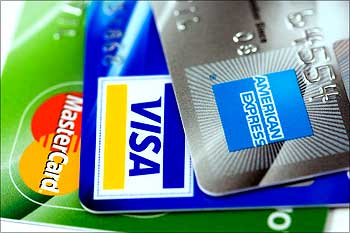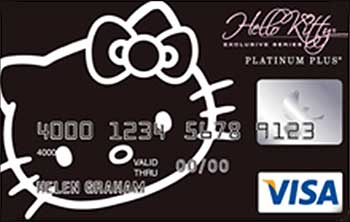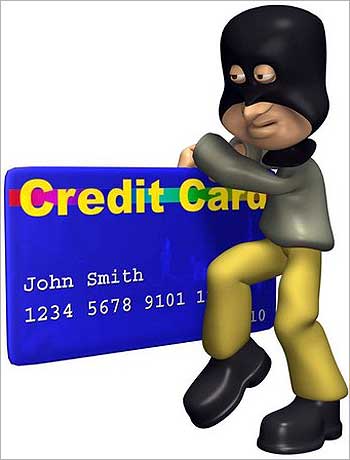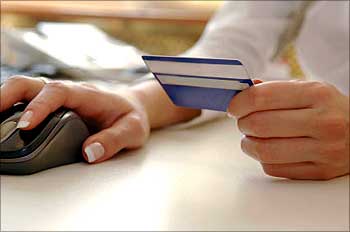 | « Back to article | Print this article |
How to manage your credit card effectively
A credit card is a useful tool, when managed judiciously but a lurking danger if you mismanage it. Currently, threatened by the global financial crisis banks are changing credit limits, doing away with interest free periods and charging higher interest rates on the credit borrowed.
One of the first things you need to keep in mind is to read the terms and conditions when you apply for a credit card. It could be a laborious process but something that has to be dealt with, to protect yourself from any rude surprises that might be in store in times like this.
One hears stories of money being taken from the savings account of a person who has a credit card with that particular bank! Well, banks are allowed to do so, when a default occurs, the clause is covered in the terms and conditions. Banks also have an auto debit facility to claim a minimum payment on credit borrowed, if in case your account does not have enough funds, banks are allowed to levy a fine, which varies from bank to bank. So ensure you always have sufficient funds, when you opt for the auto debit facility to cover your minimum payment due.
Profit from your credit card!
Credit cards can be useful when you make a profit out of it! Now, how is that possible? Well, it all depends on the kind of card you purchase, its best to opt for a lifetime free credit card that does not have an annual fee attached. Also get a card that matches your lifestyle. If you shop a lot, see that your card offers a lot of discounts and cash back rewards for all the shopping you do with your card. If your job allows you to make frequent trips, get a card that gives you several travel friendly schemes on eating out, hotel stays and airline ticket discounts.
How to manage your credit card effectively
High interest rates
Though the whole point of having a credit card is to provide you with cashless convenience, it makes money sense to decide, when, how and why you should use it. Never get tangled in the web of debt, especially when it comes to credit cards. Though its an ideal resource to tap into, when you need to ramp up funds quickly, the interest rates charged on a credit card are much higher than even those charged on personal loans. Remember that cash withdrawals from an ATM with your credit card will be charged a processing fee of around 2 per cent and an even higher rate of interest than your regular purchases on the card.
Taking a loan on your credit card
Most credit cards do offer an EMI facility to pay any loan you take on your credit limit. It normally takes just one or two business days to obtain this loan and this can even be arranged over the phone with no documentation. However, the difference lies in the high interest rate charged, which can be an annualized interest rate of around 30-42 per cent. The cards that offer a comparatively lower interest rate in the range of 22-26 per cent most often do not have an EMI facility for repayments.
Though credit cards seem like a good bet for short term fund requirements, refrain from using it unless you can make the credit card usage count for some kind of benefit. Using your credit card purchases for an interest free period is fine, however remember the bank can do away with interest free periods anytime it chooses to and also hike the interest rates, according to its free will. Hence, be wary of a credit card and use it sensibly.
Another important aspect in managing your credit card is to keep a careful tab on your credit card statement, and make sure that it reaches you on a monthly basis.
How to manage your credit card effectively
Understanding your credit card statement
Scrutinize your credit card statement to understand your spending pattern. If a bill does not arrive on time for you to pay your dues, report this to the bank immediately. Also keep track of the credit card bill through your online banking account.
The first detail you need to clarify is your name, billing address, card number et al to make sure its correct. The second aspect is the total outstanding balance and current due date for payment. This column will also have the previous month's transaction using the card.
Here is an example:
| Previous Balance Rs 2,000 | Current outstanding amount Rs 4,000 | Total outstanding amount Rs 6,000 | Minimum payment due Rs 240 | Payment Due date 25/02/09 |
Minimum Payment Due
The date for the minimum payment due allows you to pay up a small amount upfront and this is usually in place to protect your credit score. However, as a practice ensure that you pay the total amount due before the minimum payment due date to maintain an impeccable credit score else you will be levied interest on the balance amount pending if you continue to pay the actual amount due in full only after this due date. If you fail to pay even the minimum amount due you will incur a late payment fee as well.
How to manage your credit card effectively
Transaction Details
The second aspect to be scrutinized is the list of purchases or transactions done throughout that particular billing cycle. Go through each particular of this list to see if they match your expense records. Usually your statement will have a reference number that can be quoted if you feel any charge specified needs to be clarified.
Utilizing your reference number for billing errors and unauthorized charges
Always commit in writing within 60 days (this time period varies from bank to bank) of the receipt of your statement the complaint regarding the billing error or unauthorized charges. Include all the following particulars in your complaint:
- Your name, address, account number and reference number
- Error description
- The date and amount of the charge
- Reason cited for the dispute of charge
Check your credit card statement if there is a specific address to which the complaint has to be sent to. This might be at the end of the statement or as part of the fine print, behind the statement.
Your credit card statement also has the other particulars like:
Credit limit
This is the maximum limit up to which you can make purchases or withdraw cash on your card. This credit limit can be revised by your credit card company depending on your credit score and your repayment track record.
Available credit limit
This will be the amount you can still avail after you have made a bunch of transactions using the card. For instance, if you have a credit limit of Rs 1 lakh and you have made purchases worth Rs 25,000, then your current available credit limit would be the balance, Rs 75,000.
This is the actual cash limit up to which you can withdraw on your card, which is included in your credit limit.
How to manage your credit card effectively
Statement Date
The billing cycle ends on a particular date after which the statement is printed, the interest rates applicable for your card transactions are calculated using this statement date as the starting point.
Total outstanding Amount Due
This includes past and present credit expenses and other charges levied to your account.
Reward Points Summary
This provides you cash discounts and other benefits on purchases made when accumulated over a period of time. This column contains all the past points earned and utilised by you till that particular billing cycle.
Grace Period
A grace period is the number of days you might get as relief before the high interest rates start kicking in for the remainder of the amount that is due. This can be anywhere between 20 and 25 days.
Go for the grind, read the fine print
Read the fine print behind the credit card statement, it will throw light on a number of curious queries you wish you had an answer to when you look at your credit card statement one fine day and find some puzzling figures there.
Own a credit card responsibly
The responsibility of learning to use your credit card is imperative. For this learning it is important for you to understand your credit card statement and, the terms and conditions associated with your credit card policy. Armed with this learning you can make the best out of this cashless convenience.
Powered by
BankBazaar.com is an online marketplace where you can instantly get loan rate quotes, compare and apply online for your personal loan, home loan and credit card needs from India's leading banks and NBFCs.
Copyright 2024 www.BankBazaar.com. All rights reserved.




